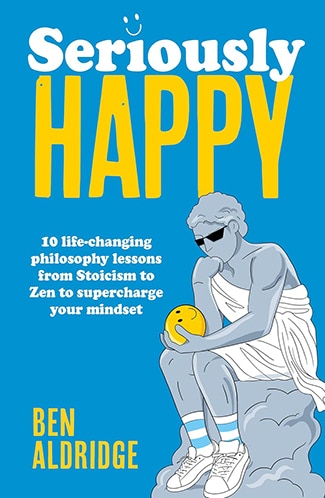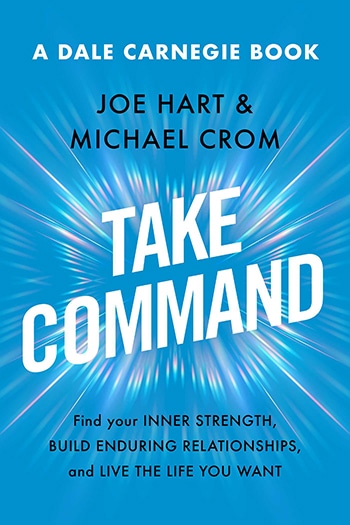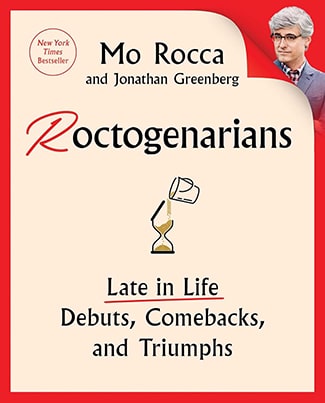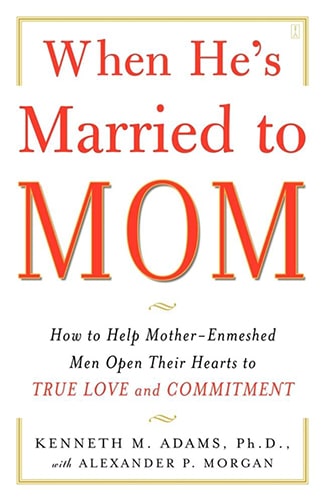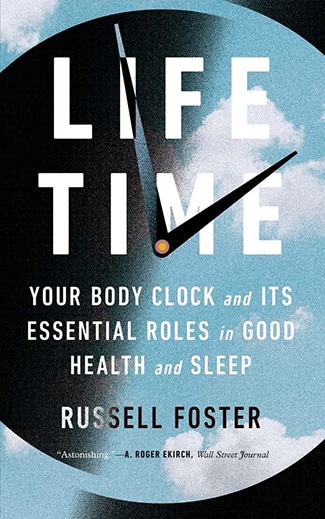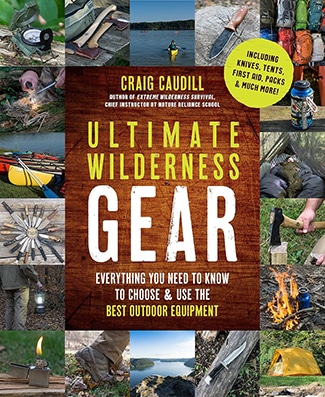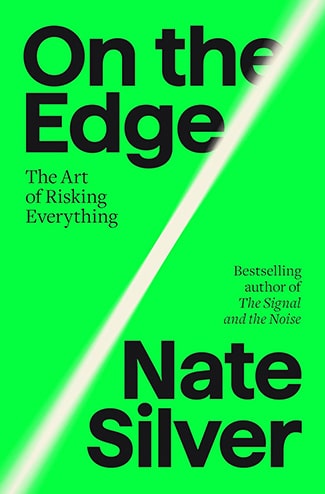Podcast Summary
Circadian rhythms and light exposure: Understanding and working with our circadian rhythms, influenced by light exposure, can lead to improved health and happiness. Chronotypes, morning larks or night owls, impact our rhythms, and night shifts require careful consideration of light exposure to minimize negative effects.
Our bodies follow a 24-hour internal clock called the circadian rhythm, which not only regulates our sleep-wake cycle but also influences various physical, mental, and behavioral changes. Working in harmony with our circadian rhythm can boost our health and happiness. Russell Foster, a professor of circadian neuroscience and author of "Lifetime," discussed the science behind circadian rhythms, their connection to light exposure, and practical implications. He explained how our chronotype, or whether we're morning larks or night owls, can influence our circadian rhythm. Additionally, he discussed the significance of considering light exposure when working night shifts and the potential harms, as well as ways to mitigate them. Furthermore, he touched on the best times of day for exercise and medication intake based on our circadian rhythm. Foster's passion for light sensing systems led him to research circadian rhythms, eventually becoming a sleep researcher as well. Scientists discovered our internal clock through observing the opening and closing of plant leaves, even in complete darkness, and later in humans through sleep studies.
Photosensitive retinal ganglion cells (PRGCs): Photosensitive retinal ganglion cells (PRGCs) are a type of photoreceptor in the eye that help synchronize our internal clock with the external environment using blue light and play a role in regulating the clock and measuring environmental brightness.
Our bodies have an internal clock, called the circadian rhythm, which keeps us on a roughly 24-hour schedule. However, this clock needs external stimuli, particularly light, to stay synchronized with the day-night cycle. This is important because our biology needs to deliver the right nutrients and energy to the right organs at the right time of day. The circadian system, which helps regulate this, is most powerfully influenced by the dawn-dusk cycle. Research has shown that there is a third type of photoreceptor in the eye, called photosensitive retinal ganglion cells (PRGCs), in addition to rods and cones. These cells are directly light-sensitive and use a blue light-sensitive pigment called melanopsin. They play a crucial role in synchronizing our internal clock with the external environment. Even people with no conscious light perception, such as an elderly lady with no rods or cones, can still regulate their circadian rhythms and respond to changes in light levels due to the presence of these PRGCs. These cells not only regulate the clock but also provide a generalized measure of environmental brightness to other parts of the brain, affecting things like pupil size.
Light and Circadian Rhythms: Exposure to morning and evening light affects our circadian rhythms differently, while the impact of artificial light on our circadian system is complex and depends on various factors
Our exposure to light, particularly during specific times of the day, can significantly impact our circadian rhythms. Morning light can advance the clock, making us get up earlier and go to bed earlier, while evening light can delay the clock, keeping us up later. However, the effects of artificial light, such as that emitted by digital devices, on our circadian rhythms are not as clear-cut as once believed. Early studies suggested that blue light from screens could disrupt sleep, but more recent research has shown that the impact of light on our circadian system depends on the amount of light we've been exposed to during the day, our age, the angle of gaze, and other factors. Therefore, the use of yellow or orange glasses or blue-blocking computer programs may not be necessary to protect our circadian rhythms from the effects of artificial light. Overall, the relationship between light exposure and circadian rhythms is complex and still being studied, but it's clear that our exposure to light plays a crucial role in regulating our sleep-wake cycles and overall health.
Shift work disruptions: Shift work can lead to mood swings, irritability, anxiety, impulsivity, memory issues, decision-making difficulties, increased risk of cardiovascular disease, altered stress responses, decreased immune function, depression, psychosis, and dementia. Minimize light exposure in the evenings and establish a consistent sleep schedule to mitigate some effects.
Disruptions to our usual wake-during-the-day and sleep-during-the-night schedule, such as from shift work, can lead to significant emotional, cognitive, and physiological effects. These can include mood swings, irritability, anxiety, impulsivity, memory issues, decision-making difficulties, increased risk of cardiovascular disease, altered stress responses, and decreased immune function. Long-term, this can even lead to increased risk of depression, psychosis, and dementia. Minimizing light exposure in the evenings, especially from interactive devices, and establishing a consistent sleep schedule can help mitigate some of these effects. However, the exact impact can vary greatly from person to person.
Shift work mitigation strategies: Employers can install alertness-detecting apps, provide bright light, offer regular health checks, and make healthy food options available to mitigate negative effects of shift work on employees.
Employers can take steps to mitigate the negative effects of shift work on their employees, particularly in regards to safety and health. Some suggestions include installing alertness-detecting apps for drivers, providing bright light in workstations, offering regular health checks, and making healthy food options available. It's important to recognize the consequences of night shift work on employees and their families, and consider limiting night shift work to certain periods of time. Additionally, understanding the genetic, age, and light-exposure components of chronotypes can help individuals adjust their sleep patterns and improve their overall sleep quality as they age.
Normal fragmented sleep in 40s: Historically, bimodal sleep is normal, people wake up and fall back asleep. Age weakens circadian drive for sleep, focus on enjoying sleep, not worrying about past sleep patterns, and manage frequent urination with medication if needed.
Waking up during the night and experiencing fragmented sleep is normal and not a cause for concern, especially during the demanding decades of one's 40s. The human norm was historically bimodal sleep, meaning people would wake up and then fall back asleep. The key is to stay relaxed and calm to return to sleep. As we age, our circadian drive for sleep may not be as robust, but it's essential to focus on enjoying the sleep we get and not worry about the sleep we had in our youth. Additionally, frequent urination during the night could be due to a dampening of various hormonal drives and the redistribution of blood when transitioning from a seated position to lying down. If necessary, medications can be used to help manage urine production during sleep. Overall, it's crucial to listen to others' observations about our sleep patterns and consider whether our sleep quality is impacting our daily performance.
Circadian rhythm and food processing: Our circadian rhythm influences how our body processes food, with daytime for taking in and burning calories, and nighttime for mobilizing stored energy. Focus on eating most of your calories during morning and lunchtime, avoid caffeine after 2 p.m., and consider consuming carbs later in the morning for better metabolic outcomes.
Our circadian rhythm not only affects our sleep but also governs our metabolism and how our body processes food. During the day, we take in calories and burn them, while at night, we mobilize stored energy. The way we process food changes across the day, and it's essential to concentrate our food intake during the morning and lunchtime rather than late into the evening. Exercising in the morning before breakfast can help burn up stored calories, while later in the day, we can exercise with more power and burn up calories taken in during the day. Additionally, avoiding caffeine consumption after 2 p.m. can help improve sleep quality. The ancient advice of eating breakfast like a king, lunch like a prince, and dinner like a pauper still holds true today, as our eating and working habits have changed significantly in the last century. Personal observations and research suggest that consuming carbs later in the morning instead of first thing and avoiding caffeine consumption after 2 p.m. can lead to better metabolic outcomes.
Circadian rhythm and medication timing: The circadian rhythm influences our immune system and medication effectiveness, making it crucial to consider the timing of medication intake for optimal health outcomes
Our bodies are governed by various internal systems, including the circadian rhythm and the homeostatic driver for sleep. The circadian rhythm influences many important functions, such as our immune system and how we process medication. For instance, our immune system is more effective during the day when we're active and encounter more pathogens, while it's turned down at night to reduce the risk of autoimmune responses. Additionally, the timing of medication intake can significantly impact its effectiveness. For example, taking anti-cancer drugs or anti-hypertensives at specific times can lead to vastly different outcomes. Understanding these intricacies can help us make informed decisions about our health and well-being. For more information, check out Russell Foster's book "Lifetime: The Surprising New Science of Ageing" or visit the Sleep and Circadian Neuroscience Institute at the University of Oxford.
Individualized sleep needs: Sleep is a flexible behavior, and everyone's needs are unique. Use science as a guide, but prioritize getting the sleep that feels best for you.
Key takeaway from this discussion with Russell Foster, author of "Lifetime," is that sleep is a highly individual and flexible behavior. The science of sleep provides guidance, but it's up to each person to determine their own needs and make choices based on that science. The book challenges the one-size-fits-all approach to sleep, and Foster emphasizes that there's no need for strict rules or regulations. Instead, he encourages using the science of sleep to inform personal decisions and make adjustments as needed. The key is to listen to your body and prioritize getting the sleep that feels best for you. Foster also emphasizes that the message of his book is not about strict rules or regulations, but rather about using science to inform personal choices. So, remember, everyone's sleep needs are different, and it's important to prioritize getting the sleep that feels best for you.

